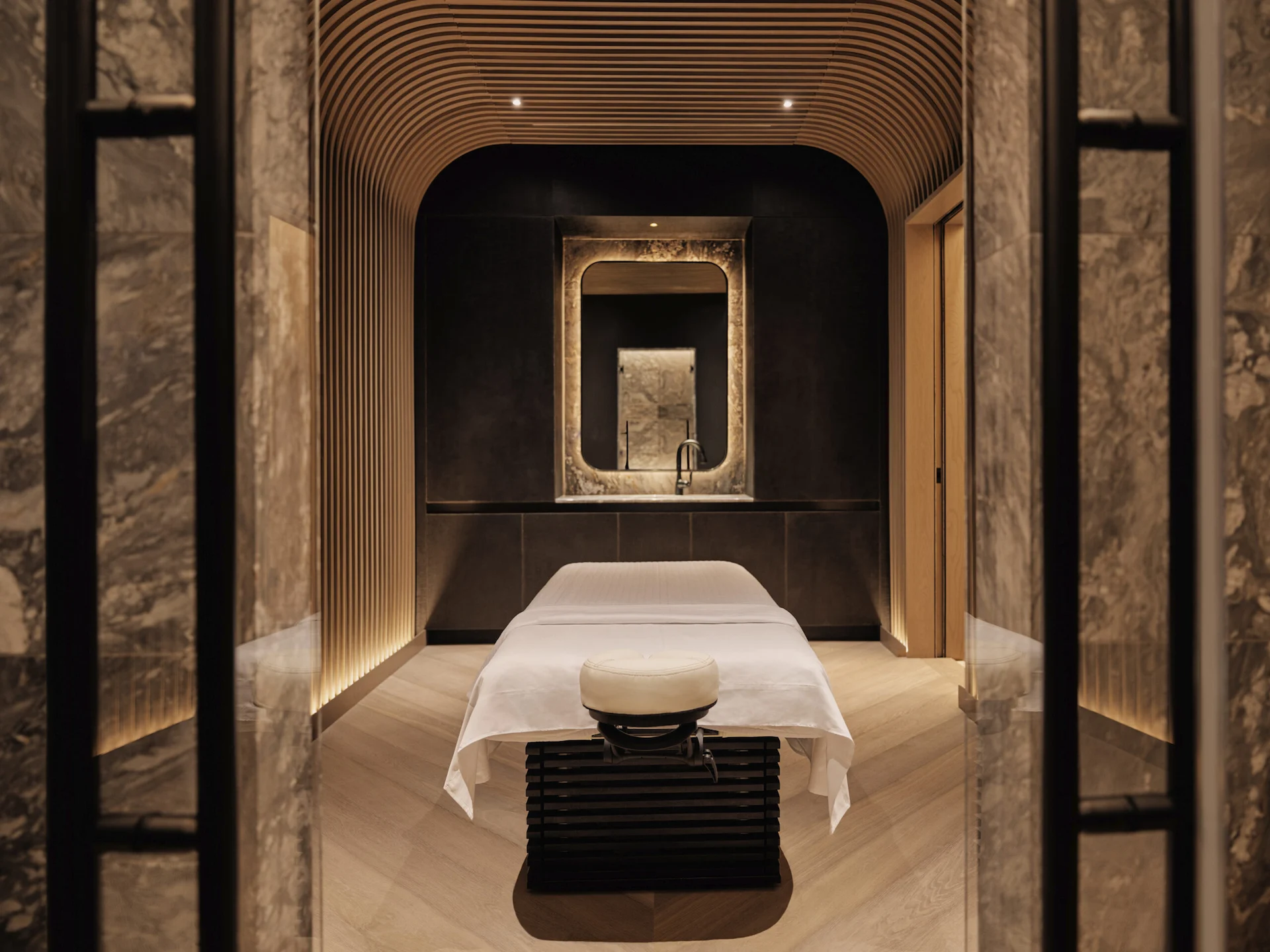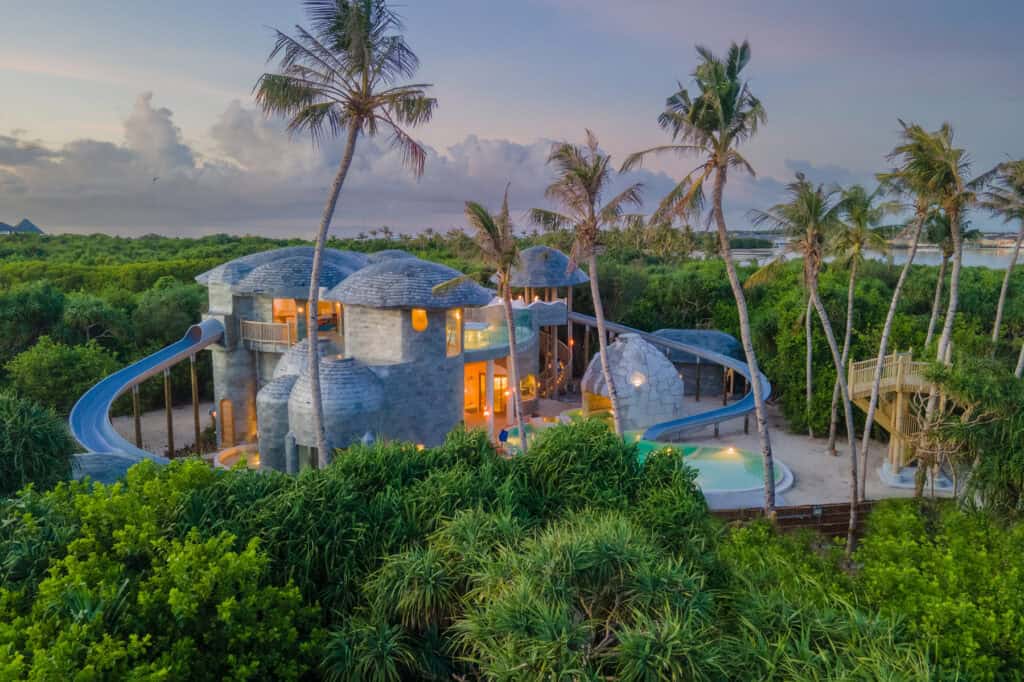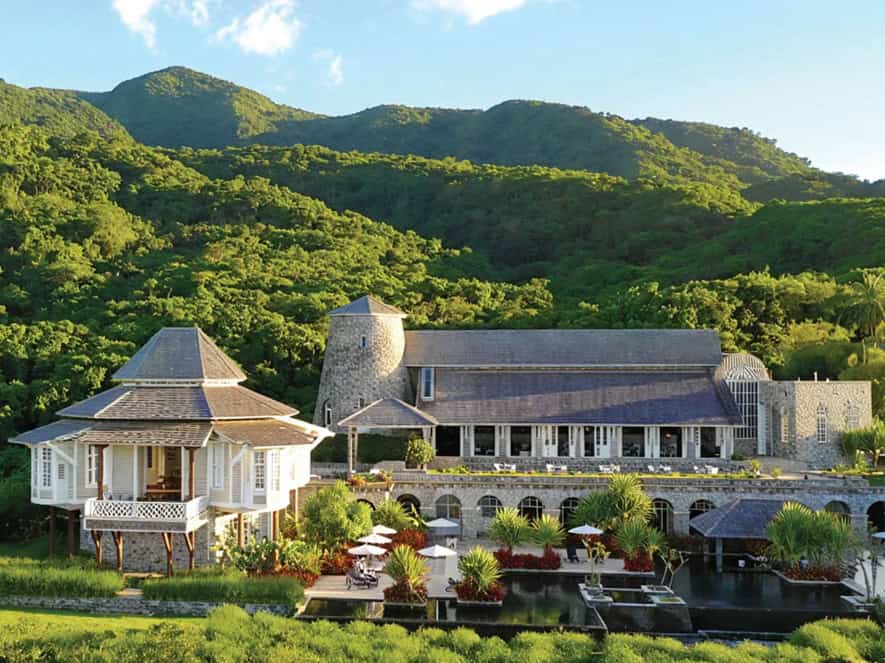It’s not every day that the Queen gives out MBE’s for services to the spa industry, but then Susan Harmsworth is no ordinary spa entrepreneur. The founder of ESPA, Harmsworth has more than 50 years experience in the spa and wellness industry and has founded and managed multiple successful wellness businesses, as well as pioneering the modern spa model we are so used to today. Compare Retreats sits down with Harmsworth to chat about her favourite spa destinations and what the future of the wellness industry holds for consumers.
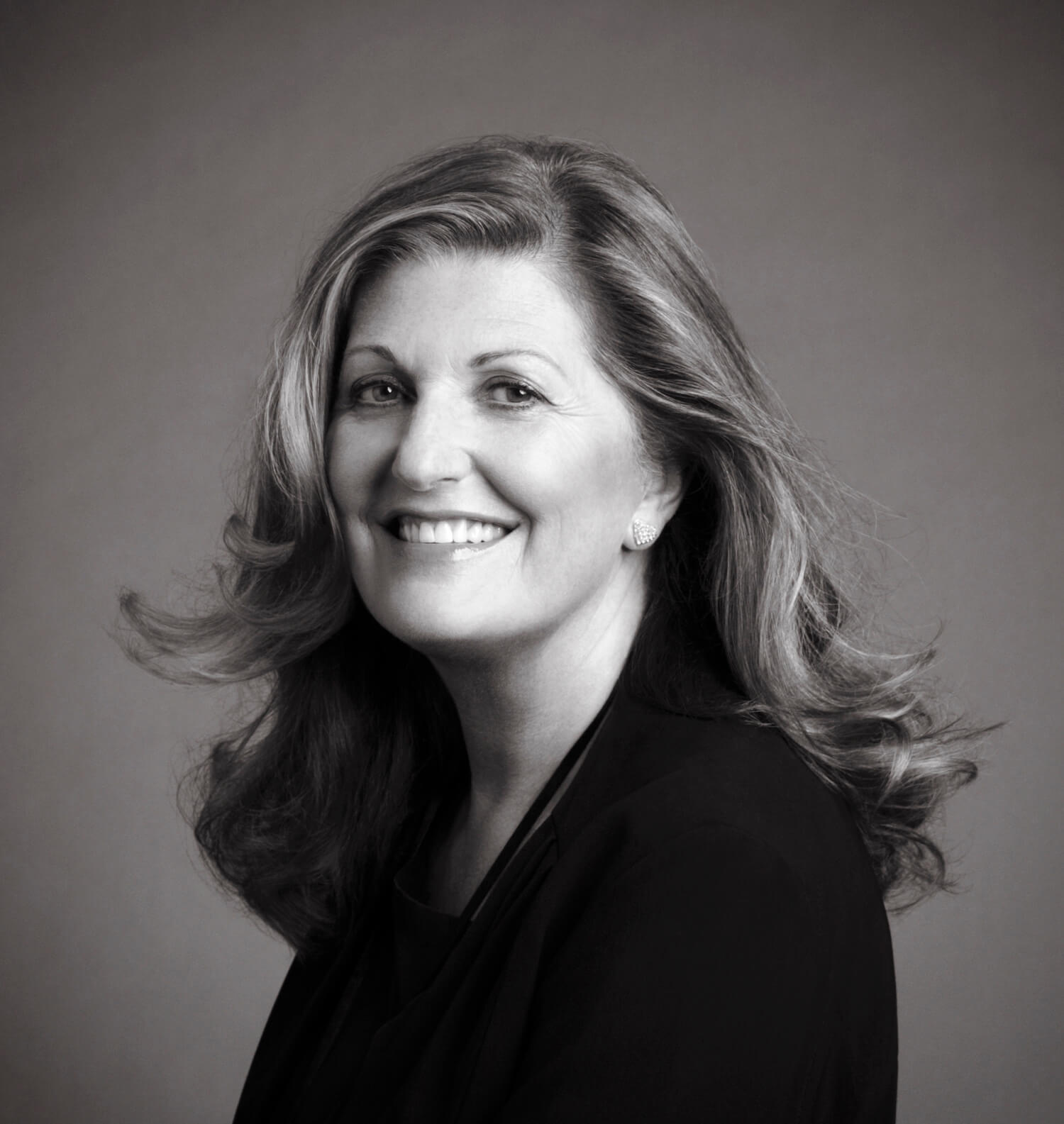
Can you share your wellness business journey and how you moved from Vogue to ESPA? It’s a long story, but here’s the short version. I was the features editor for Vogue London in the 1960s, but I’ve always had an interest in wellbeing. I helped to develop the Vidal Sassoon haircare range, and soon after moved to New York, then Toronto, where I founded, opened and developed a hair and beauty salon with 80 staff on four floors—it would be called a day spa now and was turning over about US$4 million annually in the mid-seventies.
I sold it and returned back to the UK, and took over management of a health and wellness resort (Grayshott Health Spa). I built a full staff of more than 100 therapists: doctors, nurses, osteopaths, physios, yoga and Pilates instructors… It was ahead of its time, and we were developing all the holistic treatments and our own product range before spas became mainstream. I was headhunted to be managing director of a company designing spas for the cruise liners with 1,100 therapists at sea, for whom I developed a product range.
Then, in 1988, I set up my own consultancy designing major spas, before that concept existed for five-star hotels. We developed the brand under a private label to bring together clinical aromatherapy, thalassotherapy (marine) and botanical skin care. All of the products needed to deliver this new dimension of the spa concept.
It wasn’t until 1993 that I launched ESPA. The brand had a full range of products, treatments, and training protocols, and was an instant success: it was the first spa range that was manufactured in the UK, was natural, unisex and was fully comprehensive for the spa environment. The Mandarin Oriental London launched as one of the first five-star spa hotels, using ESPA, followed by Gleneagles, The Peninsula Group, and really, the rest is history.
In 2017, I sold ESPA with 700 spas in 60 countries, an office in Hong Kong, Dubai, Miami, and headquarters in the UK. Now, I’m an advisor to owners developing the new generation of wellness destinations, I sit on the Board of the Global Wellness Summit and the Global Wellness Institute, and also on the Advisory Board of Forbes.
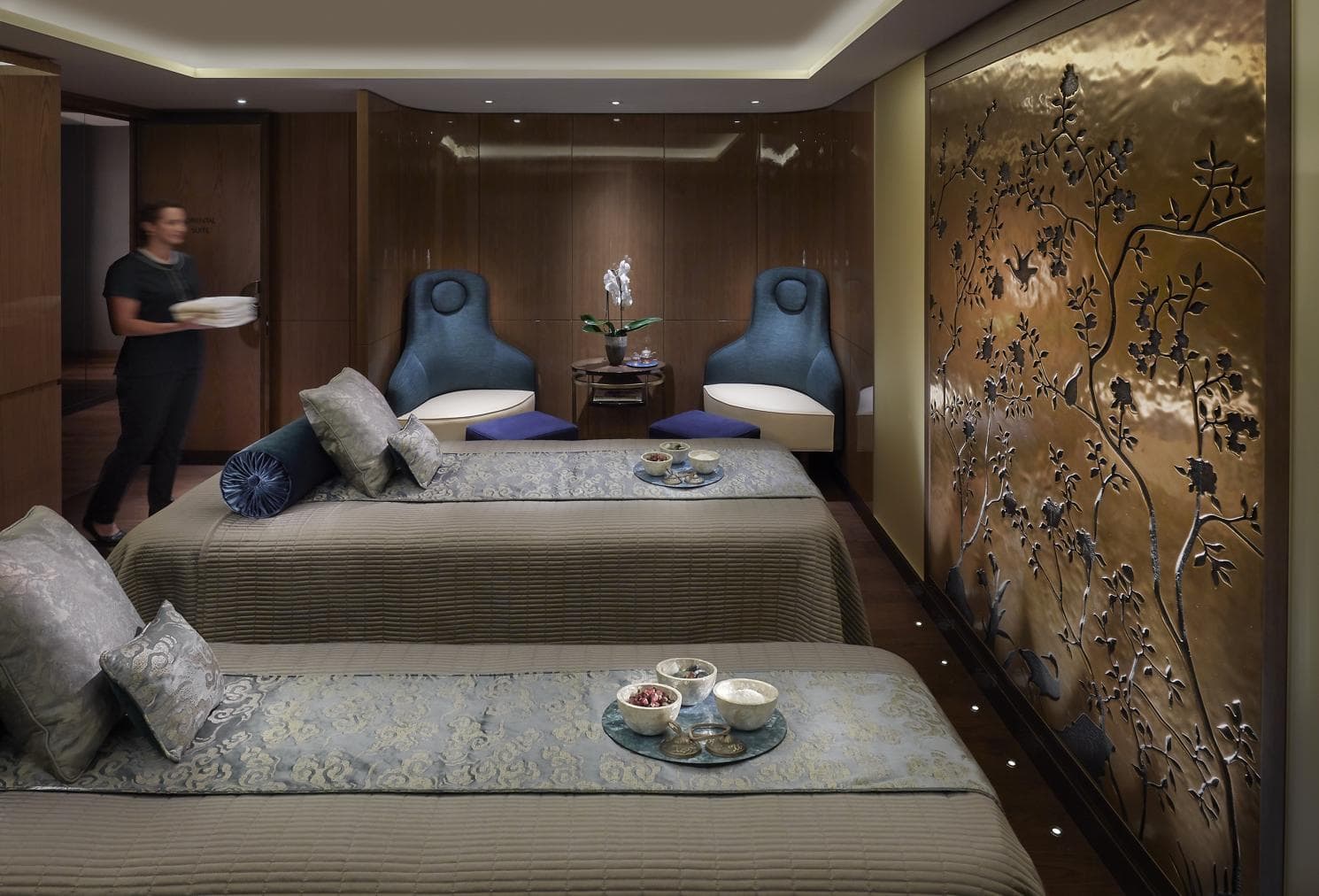
The phenomenal success of ESPA includes Fairtrade skincare and spa products, 500 spas in over 60 countries at leading hotels globally, post-graduate therapist training programmes, and a team of 250+ in-house employees. What was your winning formula for creating such a successful and resilient business in a competitive space? Building employee loyalty and passion, and training, training, training: in everything from treatment protocols to yield management, personal grooming. It’s important to develop teams with in-depth knowledge across all modalities from holistic health to the business side. This is a people and relationship industry and these values are really important: the consumers, owners and therapists have to trust the brand and people.
“Be honest with what you are offering and deliver what you say: less is more if it is done well. Gone are fancy, long treatment menus which sound amazing but don’t show results.”
Sleep, meditation, breathing, nutrition and exercise are all a few elements emphasised for overall wellbeing, but what do you prioritise and why? I do practice what I preach and try and do a lot of breathwork: I am lucky to live in the country, so I wake up every morning, weather regardless, and even if it is just for five minutes, open the doors and breath deeply, take in nature and be thankful for what I have. A lot of optimism and positivity can be taught and is a state of mind: we’re very blessed in this industry to be surrounded by supportive and caring individuals. Peace is so important, so try to find even a few minutes a day for yourself. For this, I love a bath with Epsom salts (great for magnesium), seaweed, essential oils, dimmed lighting and my favourite music (and of course, no phones).
See also: 7 Luxury Meditation Retreats In Asia To Help You Destress & Refocus
In addition to the day-to-day habits, I have done a clinical retreat once a year for the past 15 years to reboot my whole system. I have believed in the gut health principles for years: I do gain weight easily, and if I go for too long without a full detox of both mind and body, I feel it, especially as I age.
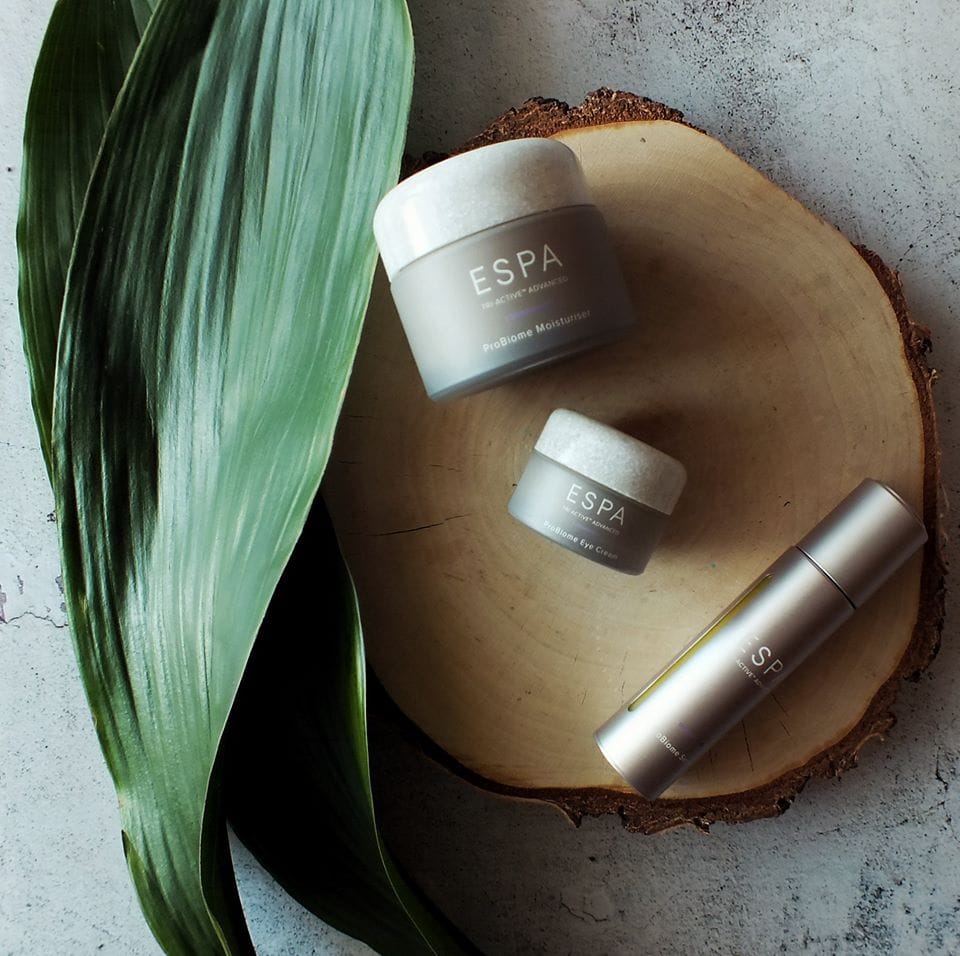
You’re well known for your glossy hair and chic style. What’s your healthy hair routine and what designers take up most of your closet space? My hair is courtesy of John Frieda in London: Lesley for a cut and Jo for colour. It’s the only non-holistic thing I do. I only wash it once a week and a good blow dry lasts. I love the new Oribe shampoo, conditioner and hair oil and I can’t live without my Cloud 9 heated Velcro rollers, they’re amazing. My favourite designers include Amanda Wakeley, ME+EM, The Row, Eskandar, Oscar de la Renta jewellery, Rupert Saunderson, Chloe, Roger Vivier shoes, and Bottega Veneta bags.
See also: 10 Natural Herbal Remedies To Take While Travelling
Your skincare regime involves layering multiple products: can you take us through your morning and evening routine including the products you swear by? I am a great believer in layering but also less is more until later in life. I now use a lot of product as at my age, I need it. I have used a very high-quality aromatherapy face oil every day for the past 30 years and my favourite is ESPA Regenerative Face treatment oil. In the morning I lightly cleanse with Floral Spafresh which includes the distillates from essential oils and is very hydrating. I don’t believe in over cleansing as it strips the skin. I use ESPA Lifestage serum first, followed by a light oil, eye serum and eye moisturiser, and finally whichever moisturiser I need. Oils treat the skin and make it strong, serums are very concentrated so feed the skin, and moisturisers keep the moisture from coming out. Three nights a week I just thoroughly cleanse and leave my skin with nothing on it to allow for the immune system to work and regenerate. When my skin is dehydrated, I exfoliate three times a week—the dryer your skin the more you should exfoliate.
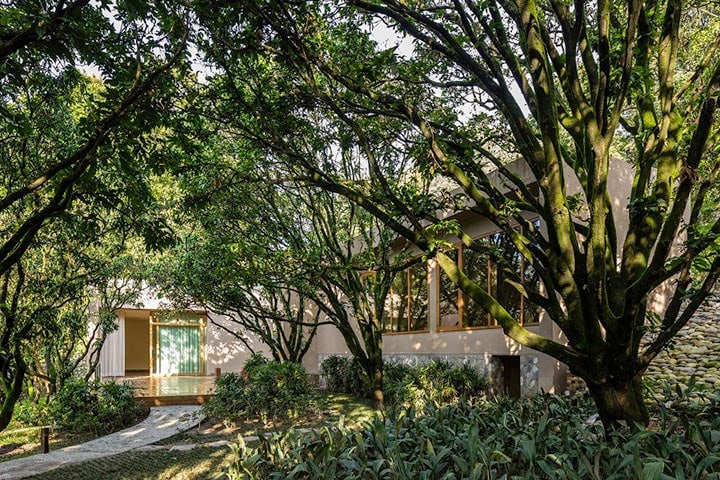
What advice do you have for wellness entrepreneurs in competitive landscapes who want to build, grow and sell their businesses? There is no quick route to market. I sold ESPA three times, first as a minority share in 2008, 15 years after I founded the company; then as a majority in 2014 and then finally in 2017. A company in this industry is people-dependant and needs to build brand trust and integrity because the consumer is very well educated. If you want to exit, you have to plan well ahead and it is best to involve your senior management so that they will help to drive and build the business to be ready.
“This is a people and relationship industry and these values are really important: the consumers, owners and therapists have to trust the brand and people.”
What’s the best and worst business advice you’ve ever received? The best advice I ever received was “always trust your instincts,” especially about people and business deals. And then the worst was from a financial expert in the leisure industry who thought we should grow fast at the expense of the quality of the products and the treatments. This doesn’t work as you have to have great product and treatments these days to compete in a global market. Try to grow gradually and don’t spread your markets too thin.
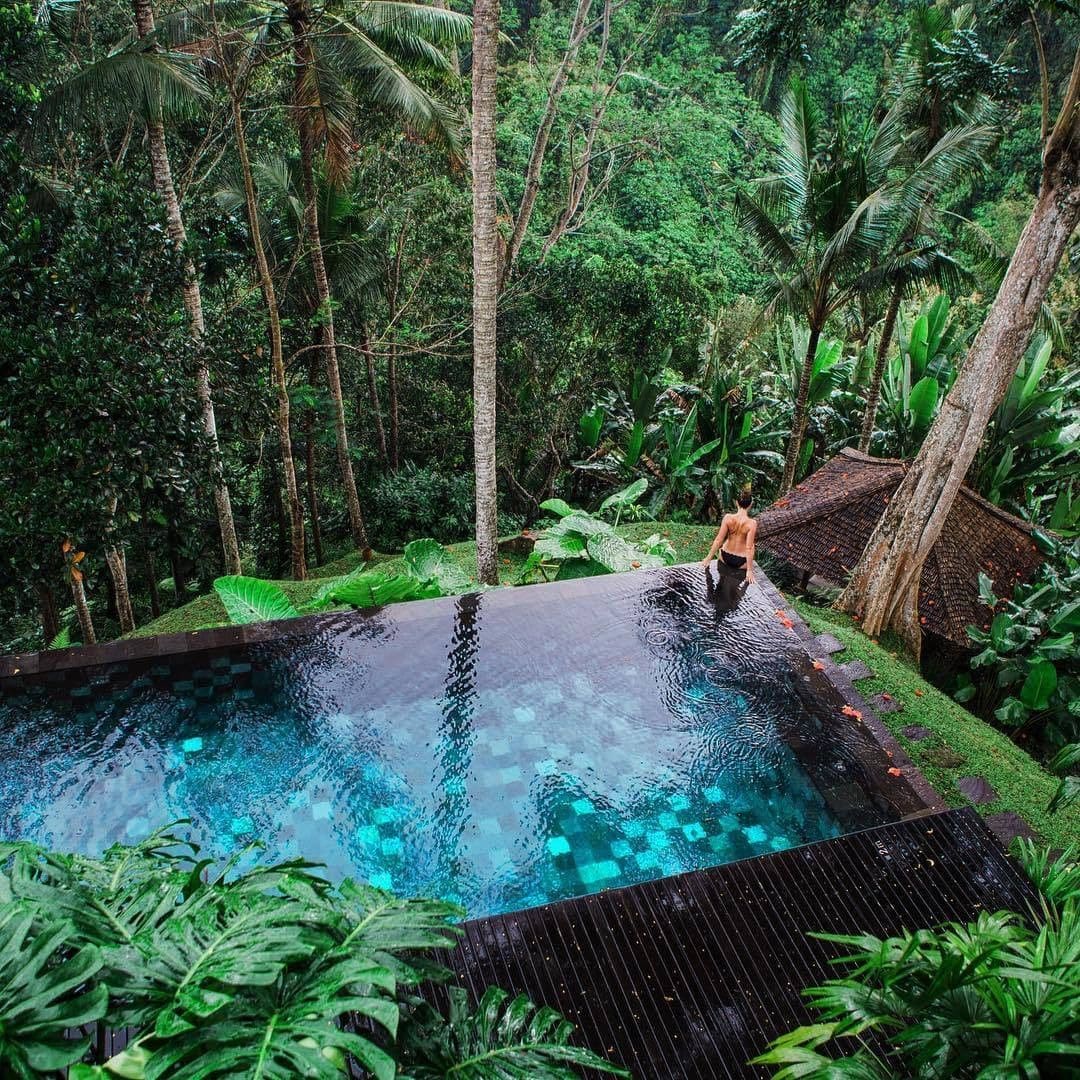
Wellness tourism is growing twice as fast as regular tourism turning spas into the star attraction at many properties. What are your favourite spa hotels in the world? My favourite spa hotels are numerous, but here are some: One & Only’s Reethi Rah in the Maldives; COMO Shambhala Estate in Bali; The Europe in Killarney, Ireland; The Corinthia in London; The Peninsula, Bangkok; The Ritz-Carlton, Osaka, Japan; Gleneagles in Scotland; The Ritz-Carlton Reserve, Krabi, Thailand; Six Senses Kaplankaya, Turkey; Lefay Resort and Spa in Italy; and Lucknam Park, England.
Medical wellness retreats in Europe and holistic health retreats in Asia are becoming increasingly popular but only a few are true masters at delivering the results they promise. What are a few key components of a successful wellness retreat? It is very confusing for the consumer at the moment as we transition from just ‘spa’ to wellness, wellbeing, retreats, spa, and beauty. It is important to be clear what’s important to you as an individual and your reason for going to a retreat. If you are looking for a more serious package where everyone eats together and sticks to a strict programme, then it is best to make sure that there is a different dining room for those on packages and ask whether alcohol and coffee are allowed. It is very difficult to detox, do a sleep programme or be mindful when those around you are drinking and having a jolly time. The question of children is also important: I have six grandchildren, but I don’t want them around if I am trying to be quiet and do deeper treatments or exercise, and quiet and peace are becoming more and more important for city dwellers. This can be addressed by good design in the more spread out resorts with family beaches, restaurants, villas etc, but do ask to be sure.
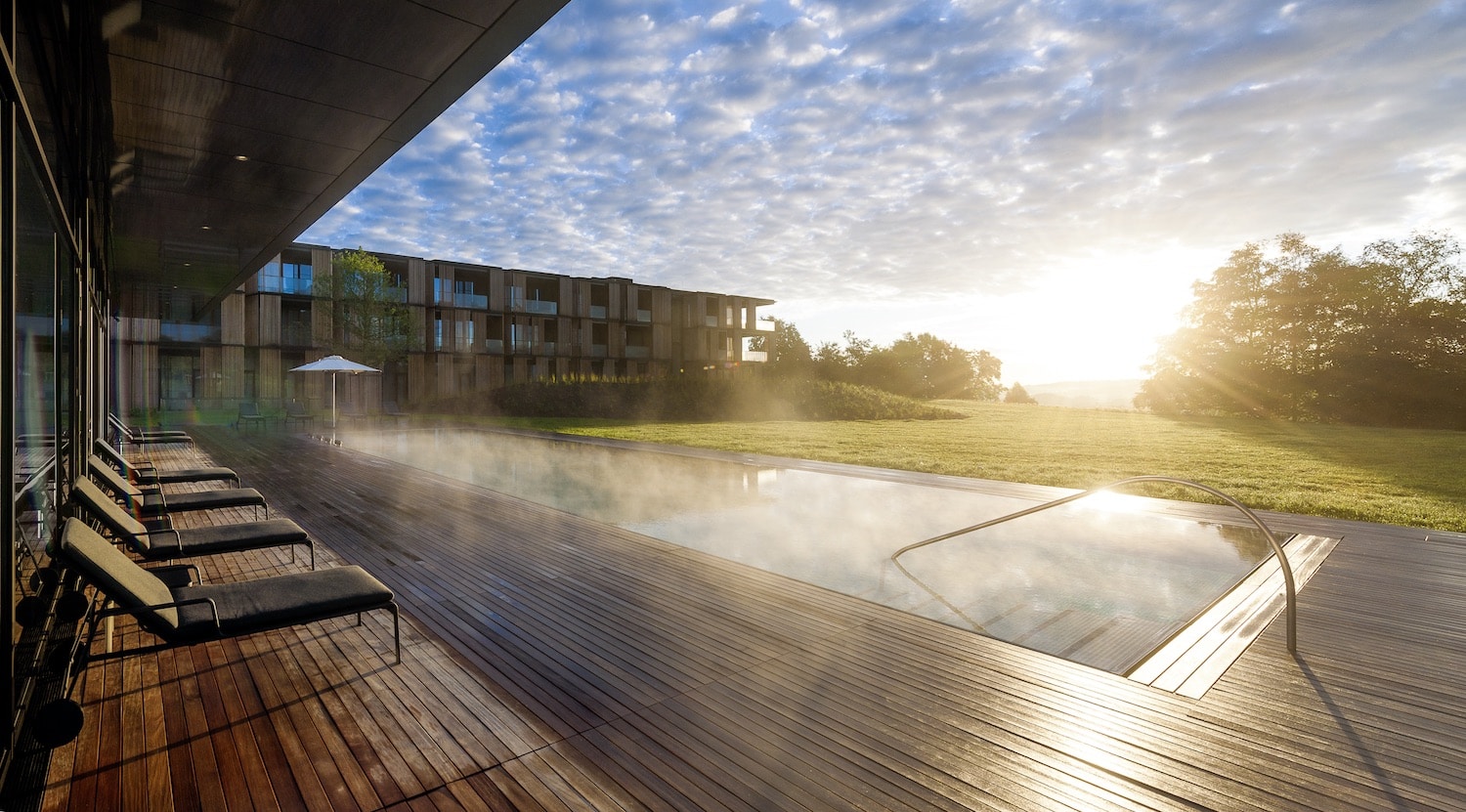
Do you have any tried and tested wellness retreat recommendations around the world? I go to different wellness destinations for different reasons. When I want to do a serious programme I go to either the Viva Mayr in Austria or Lanserhof in Germany, which are both quite clinical with great doctors but you do need to do 10 days minimum. Vana in India is amazing and a good mix of spiritual and medical. Schloss Elmau has a bit of everything and is good for families and also cultural activities. A lot of the good spa resorts are beginning to do wellness weeks and yoga retreats in the off-season, so watch out for those.
“It is important to be clear what’s important to you as an individual and your reason for going to a retreat.”
What are your in-flight and travel essentials? I have a wonderful Missoni cashmere wrap which doubles up as a blanket or scarf for going between different climates and sleeping on the plane. I can’t travel without my Bose noise eliminators: cutting out the drone of the engines makes a big difference to jet lag. I wear Noel Asmar flight leggings which help with any puffiness and ME+EM joggers over them: they are the best I have found and not too casual if you are going on business. I have a lightweight, waterproof, kindle which can minimise the blue light and I read for a third of the flight, work for a third and sleep for a third on long-haul. I have a great Tempur eye mask which doesn’t dig in.
For products, I can’t live without my ESPA essentials: the floral spa fresh spritzer doesn’t evaporate so is very hydrating, the lip treatment, the 24-hour replenishing eye moisturiser which I sometimes use all over, a great hand and nail cream, and I do my pressure points with restorative body oil to help me sleep. I carry tea tree gel to ward off germs—sometimes if people are coughing around me, I put it in my nose on a cotton bud (it sounds disgusting but really helps with infections).
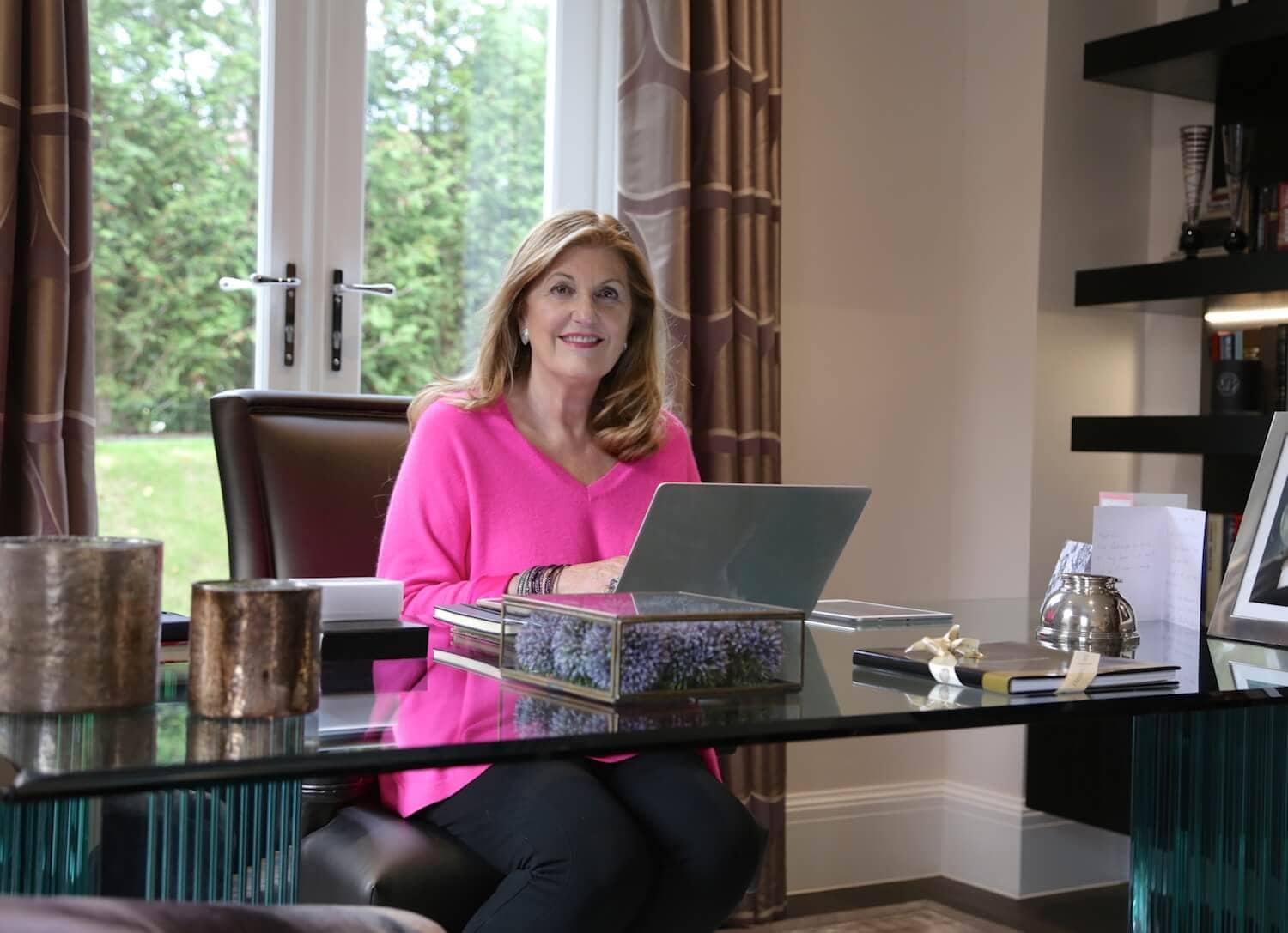
The Global Wellness Summit and Global Wellness Institute bring together wellness leaders from around the world each year and release data that shapes the industry. What are your biggest trend predictions for the spa sector in 2019 and 2020, and what will we see more and less of in this space? We will see more definition of the terminology and the consumer will vote with their feet so my advice to operators is: be honest with what you are offering and deliver what you say: less is more if it is done well. Gone are fancy, long treatment menus which sound amazing but don’t show results.
See also: Global Wellness Summit 2019 Will Be Hosted At Grand Hyatt Hong Kong
All the lifestyle issues are beginning to be addressed in the next few years: Type 2 diabetes, weight gain, gut health, sleep deprivation, difficulty with fertility in both sexes, how to deal with children in spas, pre- and post-surgery. Really spending time in nature is another huge thing: bathing in lakes, the sea etc., walking in forests, working out outside. We’re also seeing huge growth in all things mindful, and any of the ancient practices coming back like Ayurveda and TCM. I think we’ll see an increase in the social aspect of spas because loneliness is a big issue.
We’re beginning to consider how to manage tech. We have generations who have grown up with it but haven’t learned how bad the side effects can be as the data is only just coming through and they need to learn to manage it. Of course, cancer is a big issue, so pre- and post-cancer programmes are prevalent. One out of two born after 1970 will have cancer, so therapist training will be a focus for the next couple of years.

